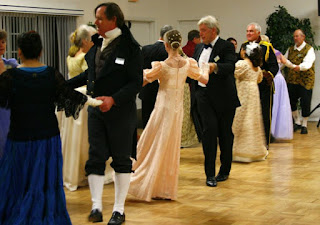In the first installment of The Hobbit
films, which was recently released in theaters, Gandalf delivers a speech about
where we can derive courage. He is discussing the threat of a terrible evil
with the elves when he says that it is the little things which little people do
everyday that teach him to hope. For Gandalf, the little hobbit Bilbo provides
him with great courage.
Sitting in the theater, I found this
statement profound regarding the terrible evil which killed school children and
teachers in Connecticut
two weeks ago. Senseless shootings like this tragedy cause us to fear the world
outside and question how safe we assume that we are.
So how does The Hobbit or the
national tragedy in Newtown,
Connecticut intersect with Pride
and Prejudice?
Well, if it is in the small, courageous actions of everyday people that
we derive courage to face evil, then perhaps some of these examples come from
our literature too.
Things of beauty, whether a sunset, a
painting, a song or a novel possess the ability to dignify those who witness
them. Pride and Prejudice dignifies us to continue believing in the
ideals of waiting for real love and cherishing sisterhood. (And it also makes
us profoundly grateful for real-life mothers who are so vastly superior to Mrs.
Bennet.) In a similar way, Lord of the Rings teaches us to keep fighting evil no matter how little we are or how hairy the tops of our toes (that was a poor hobbit joke, in case you were curious).
In the shockwave
of the Connecticut murders, another shooting,
this time in San Antonio, Texas, that happened only four days later on
December 17th went relatively unnoticed. Reminiscent of the theater shooting in Colorado last July which
killed twelve and injured many others, this incident happened at another
theater. Reportedly, a gunman entered, ironically enough, a night showing of The Hobbit.
But this time,
evil was stopped. The gunman began shooting outside and continued inside the Mayan Palace
theater. But an off-duty police officer retaliated, shooting the man four times
before anyone else was harmed.
Maybe it’s stories
that inspire us to face evil because in stories good can, must and will win. And maybe this gives us courage to believe that the same can happen in real life.












